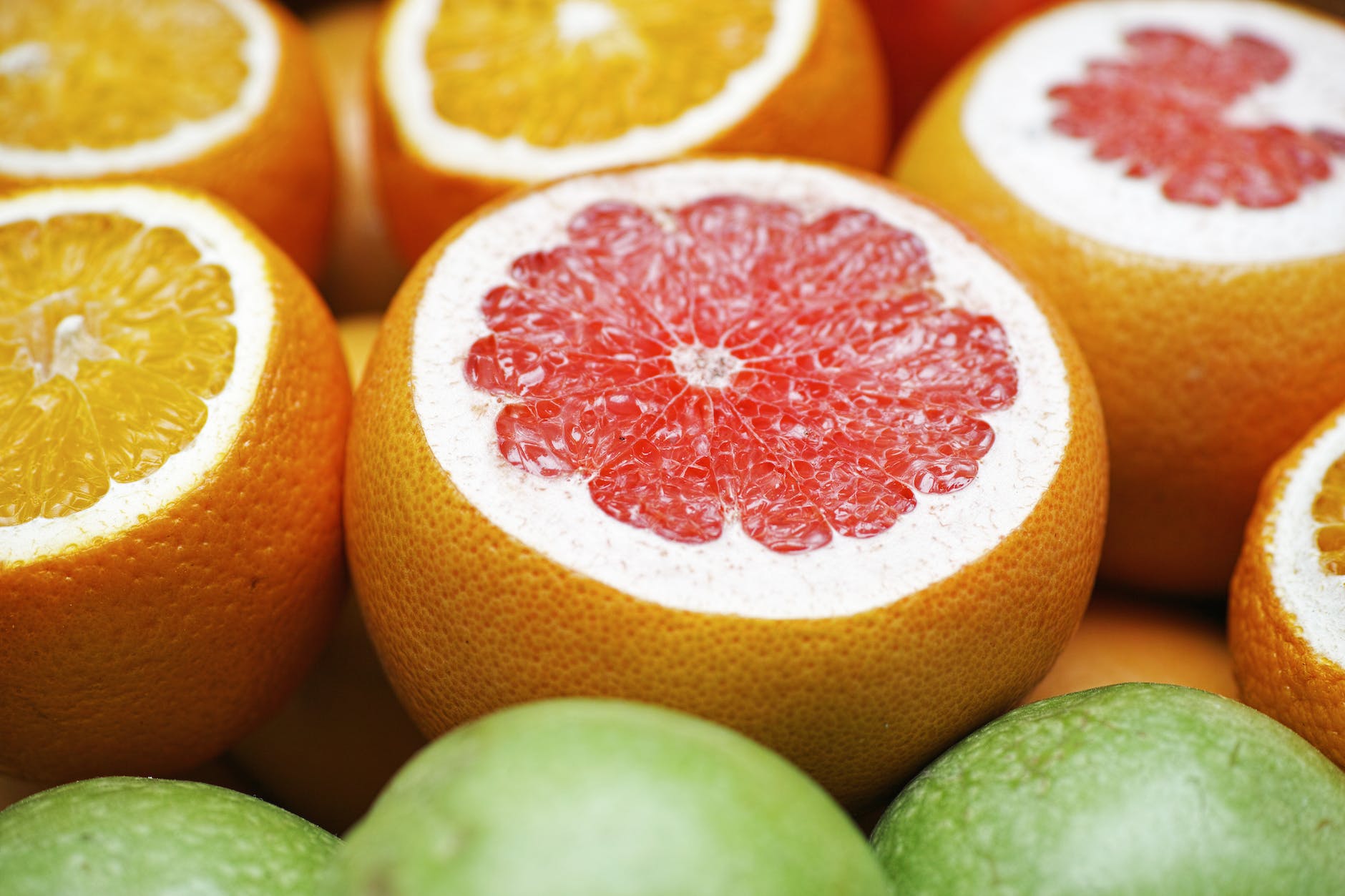
Introduction
Fennel seeds, often referred to as the tiny powerhouses of health, have been a staple in traditional medicine for centuries. Their aromatic flavor and a plethora of health benefits have made them a favorite in kitchens worldwide. Recently, they’ve gained significant attention in the realm of weight loss. But what makes these seeds so special? Let’s delve deep into the world of fennel seeds and uncover their weight loss secrets.
1. What are Fennel Seeds?
Fennel seeds, scientifically known as Foeniculum vulgare, are derived from the fennel plant, a member of the carrot family. These seeds are small, oval, and have a light greenish-brown hue. They’re not only known for their distinct sweet and licorice-like flavor but also for their medicinal properties.
Different Forms of Fennel:
- Raw Seeds: Often chewed after meals in many cultures, they act as a mouth freshener and aid in digestion.
- Powder: Ground fennel seeds are used as a spice in various cuisines, imparting a unique flavor to dishes.
- Essential Oil: Extracted from fennel seeds, this oil is used in aromatherapy and traditional treatments.
- Tea: Made by steeping fennel seeds in hot water, fennel tea is a popular beverage known for its health benefits, especially in aiding digestion and promoting weight loss.
2. Nutritional Profile of Fennel Seeds
Fennel seeds are a treasure trove of nutrients. They’re low in calories but rich in vitamins, minerals, and dietary fiber, making them an excellent addition to a weight loss diet.
Here’s a breakdown of the nutritional content per 100 grams of fennel seeds:
- Calories: 345
- Dietary Fiber: 39.8 grams – Essential for promoting a feeling of fullness and aiding digestion.
- Carbohydrates: 52.29 grams
- Protein: 15.8 grams – Helps in muscle building and repair.
- Total Fat: 14.87 grams – Contains essential fatty acids.
- Vitamin C: 21 mg – An antioxidant that boosts immunity.
- Calcium: 1196 mg – For bone health.
- Iron: 18.54 mg – Vital for blood health.
- Magnesium: 385 mg – Important for various biochemical reactions in the body.
Moreover, fennel seeds are a rich source of antioxidants like phosphorus, beta-carotene, zinc, zeaxanthin, manganese, choline, lutein, and selenium. These antioxidants play a crucial role in combating free radicals, promoting skin health, and aiding in weight loss by improving metabolism.
3. Fennel Seeds and Weight Loss: The Connection
The connection between fennel seeds and weight loss isn’t just anecdotal; it’s backed by science. Here’s how these tiny seeds can make a big difference in your weight loss journey:
Metabolism Booster
Fennel seeds contain essential oils that are known to kickstart metabolism. A faster metabolism means your body burns calories more efficiently, aiding in weight loss.
Rich in Dietary Fiber
The high fiber content in fennel seeds makes them an excellent food for weight loss. Dietary fiber promotes a feeling of fullness, reducing the likelihood of overeating. Additionally, fiber aids in digestion and prevents constipation, ensuring a healthy gut.
Natural Appetite Suppressant
Ever wondered why many cultures chew on fennel seeds after meals? One reason is that they act as a natural appetite suppressant. The compounds in fennel seeds can reduce hunger pangs, helping you avoid unnecessary snacking.
Diuretic Properties
Fennel seeds have diuretic properties, meaning they help increase the amount and frequency of urination. This helps in flushing out excess fluids and toxins from the body, reducing water retention and bloating.
4. Benefits of Fennel Seeds for Weight Loss
While we’ve touched upon the connection between fennel seeds and weight loss, let’s delve deeper into the specific benefits:
Reduces Water Retention
Thanks to its diuretic properties, fennel seeds can help reduce water retention, a common cause of temporary weight gain.
Improves Digestion
The dietary fiber in fennel seeds aids digestion, preventing issues like constipation and bloating. A healthy digestive system is crucial for effective weight loss.
Suppresses Hunger Pangs
The essential oils in fennel seeds can suppress the hunger hormone, ghrelin, reducing the urge to snack between meals.
Boosts Metabolism
The antioxidants in fennel seeds, especially the zinc and selenium, play a role in improving metabolism, ensuring that your body burns calories more efficiently.
Rich in Antioxidants
Antioxidants combat free radicals, which can otherwise cause oxidative stress and hamper the body’s ability to burn fat.
5. Fennel Tea: A Weight Loss Elixir
Fennel tea is a popular beverage made by steeping fennel seeds in hot water. But beyond its soothing taste, it’s a drink loaded with benefits:
How to Prepare Fennel Tea:
- Take a teaspoon of fennel seeds and crush them slightly to release their flavor.
- Boil a cup of water and add the crushed seeds.
- Let it steep for 5-7 minutes.
- Strain and enjoy. For added flavor, you can add a dash of honey or lemon.
Benefits Specific to Fennel Tea for Weight Loss:
- Detoxifies the Body: Fennel tea helps in flushing out toxins, ensuring a healthy liver, which is crucial for fat metabolism.
- Reduces Bloating: The anti-spasmodic properties of fennel tea can reduce bloating and stomach cramps.
- Improves Gut Health: Regular consumption can lead to a healthy gut, which is essential for weight loss.
6. Saunf Water (Fennel Water) and Its Advantages
In many cultures, especially in India, fennel water or ‘Saunf Ka Pani’ is a traditional remedy for various ailments. But it’s also a secret weight loss weapon:
Preparation Method:
- Soak 2 tablespoons of fennel seeds in a glass of water overnight.
- In the morning, strain the water and drink it on an empty stomach.
Benefits of Drinking Saunf Water:
- Boosts Metabolism: Starting your day with saunf water can kickstart your metabolism.
- Aids Digestion: It prepares your digestive system for the day, ensuring efficient digestion of food.
- Rich in Antioxidants: The overnight soaking releases antioxidants into the water, providing you with a morning dose of health.
7. Fennel Seeds and Hormonal Balance
Fennel seeds have been traditionally used, especially among women, for their potential to balance hormones. This balance can indirectly aid in weight management.
Phytoestrogens in Fennel Seeds
Fennel seeds contain compounds called phytoestrogens. These are plant-derived compounds that can mimic the hormone estrogen in the body. For women experiencing low estrogen levels, especially during menopause, fennel seeds can provide relief from symptoms like hot flashes, which can lead to weight gain.
Regulating Menstrual Cycles
Regular consumption of fennel seeds can also help in regulating menstrual cycles. A regular cycle can aid in effective weight management, especially for women with PCOS (Polycystic Ovary Syndrome), where weight gain is a common symptom.
Mood Enhancer
Hormonal imbalances can lead to mood swings and stress, which can result in emotional eating. Fennel seeds, with their calming properties, can help in elevating mood, reducing the chances of stress-induced weight gain.
8. Side Effects and Precautions
While fennel seeds offer numerous health benefits, it’s essential to be aware of potential side effects and precautions:
Allergic Reactions
Some people might be allergic to fennel seeds, leading to skin rashes or breathing difficulties. It’s crucial to do a patch test or consult with a healthcare professional before incorporating them into your diet.
Pregnancy and Breastfeeding
Pregnant women should consume fennel seeds in moderation as they can stimulate menstruation. While they are traditionally used to increase breast milk production, it’s essential to consult with a healthcare professional.
Medication Interactions
Fennel seeds can interact with certain medications, especially those related to hormone therapies or blood thinners. Always consult with a doctor if you’re on medication.
9. Fennel Seeds in Culinary Delights
Beyond their medicinal properties, fennel seeds are a culinary delight. They add a burst of flavor to dishes and can be incorporated into your diet in various ways:
Spice in Dishes
Ground fennel seeds can be added to curries, soups, and stews for an aromatic flavor.
Salads and Dressings
Roasted fennel seeds can be sprinkled over salads or incorporated into dressings for an added crunch and flavor.
Breads and Biscuits
Add them to your dough for a unique taste in homemade bread or biscuits.
Desserts
Fennel seeds can be added to desserts like rice pudding or even cookies for a twist in flavor.
10. Fennel Essential Oil: Beyond the Seeds
Fennel essential oil, derived from fennel seeds, is a potent concentrate that offers a myriad of benefits:
Digestive Aid
Just a drop of fennel essential oil in warm water can act as a digestive aid, reducing bloating and gas.
Skin Health
The oil has anti-inflammatory properties, making it suitable for skin conditions like acne. It can be diluted with a carrier oil and applied topically.
Weight Loss Massage
When mixed with carrier oil, fennel essential oil can be used for a stimulating abdominal massage, which can aid in reducing belly fat.
Aromatherapy
Its calming scent can be used in diffusers to reduce stress, indirectly aiding in weight management by preventing emotional eating.
11. Jeera, Ajwain, and Saunf: The Power Trio
Combining fennel seeds with other potent seeds like cumin (jeera) and carom (ajwain) can amplify the weight loss benefits.
Jeera (Cumin)
- Metabolism Booster: Cumin is known to enhance the metabolic rate, aiding faster calorie burn.
- Digestive Aid: It helps in digestion and reduces bloating.
Ajwain (Carom Seeds)
- Digestive Health: Ajwain is known for its instant relief from indigestion and acidity.
- Detoxification: It helps in cleaning the digestive tract, aiding in better nutrient absorption.
Combination Benefits
- Detox Drink: Boiling these three seeds together and consuming the water can act as a potent detox drink.
- Enhanced Digestion: The trio can significantly improve digestion, leading to better weight management.
12. Fennel Seeds for Skin and Hair
While weight loss is a significant benefit, fennel seeds also play a role in enhancing beauty:
For Skin
- Toner: A concoction of fennel seed water can act as a natural toner, giving the skin a clear complexion.
- Acne: The anti-inflammatory properties can reduce acne and provide a smooth skin texture.
For Hair
- Hair Growth: Fennel seed water can strengthen hair from the roots, promoting hair growth.
- Scalp Health: It can combat issues like dandruff and itchy scalp.
13. Frequently Asked Questions (FAQs)
Is it safe to consume fennel seeds daily?
Yes, it is generally safe for most people when consumed in moderation.
How much fennel tea should I drink for weight loss?
One to two cups a day is generally recommended, but consult with a healthcare professional for personalized advice.
Can I use fennel seeds for cooking and still get weight loss benefits?
Absolutely! The weight loss benefits are not lost when fennel seeds are cooked.
What are the side effects of fennel seeds?
Some potential side effects include allergic reactions and interactions with medications. Always consult a healthcare professional for personalized advice.
14. Conclusion
Fennel seeds are more than just a spice; they are a powerhouse of nutrients and benefits that can aid in weight loss and overall well-being. From boosting metabolism to balancing hormones, the advantages are numerous. However, it’s essential to consult a healthcare professional for personalized advice, especially if you have underlying health conditions or are taking medications.











